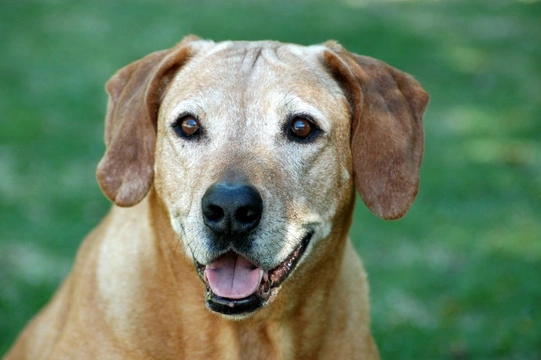
Health conditions and problems that can make your elderly dog smell bad
Most of us are all too aware of some of the more unpalatable sides of dog ownership, including our dogs’ propensity to enjoy getting mucky and dirty by means of rolling in foul things and generally, not being too bothered about being in a mess – and this is a common trait of all dogs, regardless of age.
However, regardless of the age of your dog, they shouldn’t smell objectionable all the time, or without a good reason – and if your dog does stink even shortly after a bath, this might indicate that something is wrong.
This is particularly true in the case of mature and elderly dogs, for whom foul, strange or unusual smells can be one of your first indicators of a health condition or problem in the making, which is why it is important never to ignore or disregard strange smells coming from your dog’s general vicinity.
In this article, we will examine some of the most common health conditions and other problems that can lead to an elderly dog smelling bad. Read on to learn more.
Diabetes
Diabetes can affect dogs of any age, but as your dog gets older, they will be more at risk of developing the condition, along with a range of other illnesses that are more common in old age.
When diabetes develops later in life, it tends to be progressive rather than sudden in onset, which means that the first symptoms of something being amiss can be hard to spot. Diabetic dogs and people who aren’t following a treatment protocol that may include dietary changes and/or insulin administration can go through a cycle of ketosis, which occurs when the body starts burning its own fat supplies.
Ketosis can lead to your dog’s breath smelling quite unusual, and the smell is often described as sweet and slightly foul – some people liken it to the scent of rotting fruit. Ask your vet to check your dog over and run some tests to be sure.
Kidney problems
Kidney problems and kidney disease are again, conditions that are more common in older dogs, which have a systemic effect on their body and general health. This can cause your dog’s breath to smell foul and potentially, make them smell bad in general as they groom and lick their coats. Again, speak to your vet ASAP to determine the best treatment and management protocol for your dog.
Poor dental health
Rotting teeth, gum disease, plaque and tartar will all cause bad breath in your dog, which can be quite acute and also, cause your whole dog to smell as they lick their coat. Bad breath isn’t a normal state for dogs, and if your dog’s teeth and gums are in such bad condition that their breath smells, their teeth are also apt to be painful and cause discomfort when eating.
A thorough veterinary dental procedure to extract rotting teeth and deep-clean your dog’s teeth and gums can help to resolve things.
Impacted anal glands
Anal gland impactions can lead to your dog straining to pass stools and suffering discomfort when they try to pass stools, which can cause things like scooting and taking a long time to go to the toilet.
An anal gland impaction or infection is apt to produce a very distinct and foul fishy smell from your dog’s back end, but the good news is that this is easy to resolve, and your vet (or even potentially your dog groomer) can express your dog’s anal glands and resolve the impaction.
Bladder weakness
Much like older people, older dogs sometimes suffer from bladder weakness, which can cause your dog to urinate inappropriately or suffer from urinary incontinence.
If your dog suffers from incontinence, it may be subtle enough that you won’t obviously realise that your dog is peeing or leaking urine, but this can of course cause them to smell bad, which is something you will need to discuss with your vet.
Skin conditions
Skin conditions like allergies, dermatitis and parasite infestations can all cause your dog’s skin and coat to become dull and dry, as well a producing some foul smells. As dogs get older, they are more susceptible to falling for minor ills that they would have fought off successfully when younger, so it is worth asking your vet to examine your dog and look for signs of fungal or bacterial infections, or anything else that might be causing a funny smell.
Poor grooming
Finally, whilst dogs are nowhere near as finnicky about grooming themselves as cats are, dogs do lick and groom their own coats as well, which helps to keep it in good condition and keep your dog comfortable.
However, elderly dogs often begin to neglect their own grooming a little as a natural side effect of aging, which means that they may need a little more brushing and bathing than they did when they were younger.
If your dog smells unwashed and unpleasant, it may be because they’re not keeping themselves clean – so try bathing your dog and then brushing and grooming them regularly to make up the difference.



